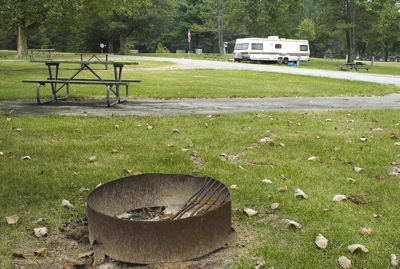Saturday, August 7th, 2010
Energy plant project not certain
By William Kincaid
CELINA - The city still wants to see local farm manure converted to electricity to reduce phosphorous loading in the watershed and provide the city with energy.
But Celina's role may be limited to just facilitating the project, as previous plans for an ambitious renewable energy resource center are not possible at this time, Bryan told the newspaper.
Optional Energy Partners of Florida - one of four companies that has talked with the city for the last year and a half about renewable energy options - wants to install a biomass digester somewhere near Celina.
"We need to move forward on that - we need to make this decision this month," Bryan said.
No site has been selected for the project, but there are three possible locations: private property at the intersection of U.S. 127 and Brown Road; county-owned land on Fleetfoot Road near state Route 29; and county-owned land south of Montezuma.
The site near Montezuma is not practical because the city would need to extend electric lines six miles out, Bryan said. Bryan did not disclose the name of the property owner of the location near Brown Road.
Bryan said the Ohio Air Quality Development Authority (OAQDA) has passed a resolution supporting tax-exempt financing for the project.
An OAQDA spokeswoman could not provide the newspaper with additional information.
Optional Energy Partners of Florida is eligible for a 30 percent rebate from the federal government if it breaks ground this year - the federal credit expires Dec. 31, according to Bryan.
"That's the motivation to try to get it started," he said.
A commercial partnership between the city and the business is not likely at this time because of Celina's financial situation, Bryan said.
The city originally planned to acquire the necessary land and obtain royalties from the business.
Optional Energy would finance, construct, own and operate the biomass digester facility, where they would generate electricity and produce commercial fertilizer from the manure, which would be removed from the local watershed and help clean Grand Lake over the long term, Bryan has said.
The success of the operation would depend on the collection of manure in liquid form from farmers.
As part of negotiations with the company so far, Celina would likely be required to purchase 1 megawatt of electricity from Optional Energy Partners at 2 to 4 cents more than the power it currently purchases from other sources.
Bryan said it is a small amount, as the city normally uses 30 megawatts a day. During peak periods, as much as 45 megawatts are needed.
Dina Pierce, Ohio EPA spokeswoman, said a biodigester project in the Celina area is only in the discussion stage.
She added that the EPA has not heard from Celina in many months about the project.
"We really haven't heard anything more specific," Pierce told the newspaper on Friday.
Because there is no specific information available, Pierce said she could only speculate what permits would be required for such a commercial facility.
Depending on the facility's size and volume of material burned, it likely would need an air pollution permit, she said.
"That is something we do on a case-by-case basis," she said.
Pierce said she was not certain if the project would require a permit-to-install (PI).
"We don't really know at this point," she said.
There also could be issues about plant discharge, Pierce added.
If the proposal comes closer to becoming a reality, the EPA could hold a public meeting to address any environmental concerns, according to Pierce.
According to its web site, Optional Energy, with locations in Florida and Michigan, claims to have the ability help communities become as energy independent as possible by resolving waste and pollution problems by extracting energy from unlikely sources.
